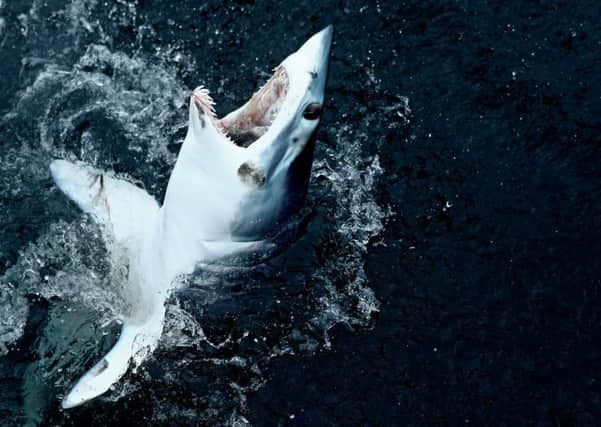Why the world’s fastest shark is in real trouble – Jonny Hughes


Together with its relative the longfin mako, and 15 other species of sharks and rays, the shortfin was recently elevated from vulnerable status to “threatened by extinction” by the IUCN (International Union for Conservation of Nature) due to rapid recent declines in the species, including a 60 per cent decline in the Atlantic region in the past 75 years. Sharks and rays might be considered the ‘canaries in the mine’ for our oceans. Their health reflects the overall health of marine ecosystems. It is therefore worrying that numbers are dropping steeply. Worldwide around a quarter of all species are under threat of extinction.
Because many are slow growing, have lengthy gestation periods and produce few young, they are very vulnerable to overfishing and are currently being fished at rates that far exceed their capacity to replenish their populations.
Advertisement
Hide AdAdvertisement
Hide AdMost shortfin makos are taken on longlines designed to catch tuna but are also caught in seine nets, gill nets and by trawlers. Over two thirds are caught in European waters yet little action has been taken by the European Union to conserve the species.
Last November, the Shark Trust rebuked the EU for its failure of leadership on this issue. Saying that “most of the blame falls squarely with the EU who, despite being responsible for the vast majority of mako catches, offered no excuse or plan for improvement”, it called on the EU to immediately impose a mako retention ban on EU fleets. The trust has a sound case for making such a call. Independent scientists have recommended catch levels need to be cut by two thirds, from 3,000 tonnes to 1,000 tonnes, if there is to be any chance of populations recovering. Mexico is also concerned about the shortfin and has taken the welcome step of proposing adding the species to Appendix II of the Convention for International Trade in Endangered Species (CITES). This would mean exports of the species would only be allowed if they are proven to be sourced from legal, sustainable fisheries which may help raise awareness of their plight.
If there is to be a sustainable future for the world’s sharks and rays, restrictions on overfishing and inclusion within CITES are urgently needed and yet, by themselves, these measures are unlikely to be enough to bring many species back from the brink. Other measures include reducing pollution and improving habitats in coastal waters, for example by designating marine protected areas.
Perhaps the most important action needed is to reduce the demand for shark meat and fins, particularly in China and Hong Kong where shark fin soup is a popular delicacy. It has been estimated that 73 million sharks are killed for soup alone each year. Sharks have their fins cut off at sea and are then thrown back into the water, only to die from being unable to swim fast enough to pass oxygen though their gills.
Ultimately, the survival of sharks and rays is likely to depend on millions of consumers changing their values and cultural traditions. Until we reduce demand through developing a newfound, worldwide respect for these fascinating creatures, their future on this planet will remain highly uncertain.
Jonny Hughes is a Scottish Wildlife Trust ambassador. He’s on Twitter @JonnyEcology